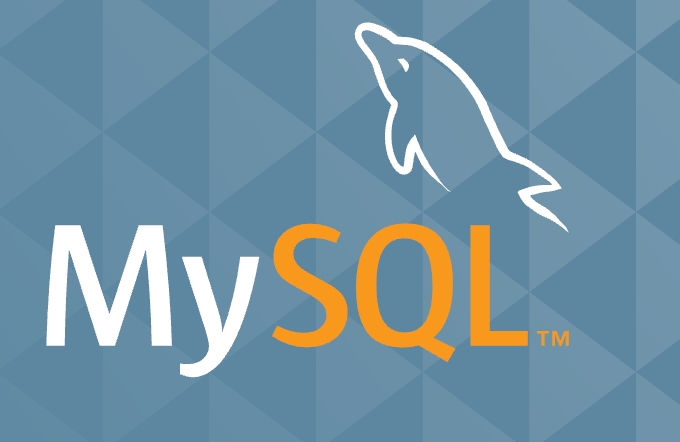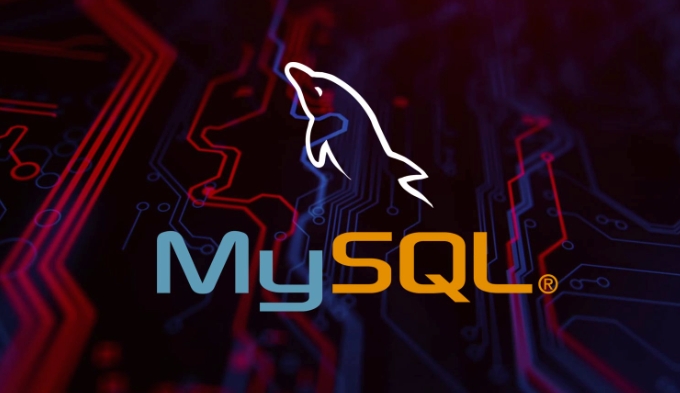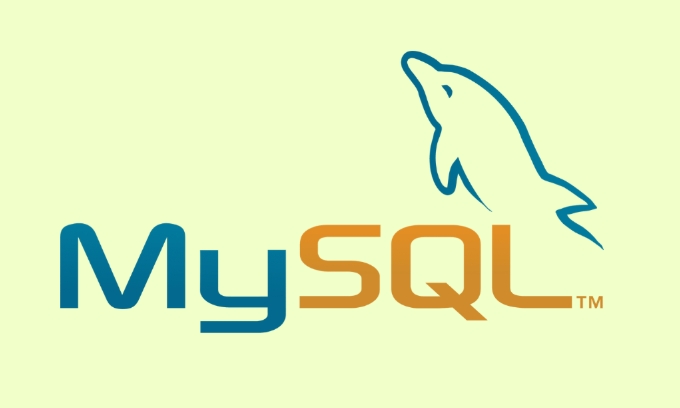Integrating MySQL with Apache Kafka for Real-time Data Streams
Jul 18, 2025 am 01:53 AMIntegrating MySQL and Apache Kafka can realize real-time data change push. The common solutions are as follows: 1. Use Debezium to capture database changes, encapsulate data changes into Kafka messages by reading MySQL binlog. The process includes enabling binlog, installing Kafka Connect and Debezium plug-ins, configuring connectors and starting; 2. Pushing changes to Kafka through MySQL triggers, but there are shortcomings such as poor performance, no retry mechanism, and complex maintenance, which are only suitable for simple scenarios; 3. Use data synchronization services provided by cloud manufacturers such as Alibaba Cloud DTS, AWS DMS, etc., which have the advantages of maintenance-free, graphical configuration, and support for breakpoint continuous transmission, but it requires a certain cost. Among them, Debezium is the most cost-effective solution and suitable for most small and medium-sized teams.

The integration of MySQL and Apache Kafka is becoming increasingly common in modern real-time data architectures. Simply put, this combination allows you to push data changes in MySQL out in real time for consumption and processing by other systems. For example, when the order status is updated, downstream services can receive notifications immediately and respond.

The key to achieving this is how to capture data changes in MySQL and transfer them to Kafka in an efficient and reliable manner. Here are some common practices and suggestions.
Use Debezium to capture database changes
Debezium is an open source tool based on Kafka Connect, specially used to capture database structure changes and data changes (that is, CDC, Change Data Capture). It supports MySQL, PostgreSQL and other databases.

- It gets data changes by reading MySQL's binlog
- Change events will be encapsulated as Kafka messages and sent to the specified topic
- The configuration is relatively simple, the community is active, and the documentation is complete
The basic process of using Debezium is as follows:
- Enable MySQL binlog and set to ROW mode
- Install and configure Kafka Connect and Debezium plug-ins
- Create a connector configuration file, specifying database connection information and tables to listen to
- Start Kafka Connect and load the connector
After this step is completed, you can see the corresponding message topics of each table, which contain detailed records of insertion, update and deletion operations.

Trigger scheme that directly writes to Kafka (use with caution)
Some teams will consider using Triggers in MySQL to capture changes and push changes to Kafka through external programs. This method sounds straightforward, but it has some obvious disadvantages in actual use:
- Trigger performance overhead is high, especially in high concurrency scenarios
- There is no retry mechanism for processing failure, and data is easily lost
- Complex maintenance and difficult debugging
So unless your business scenario is very simple and the data volume is not large, this method is not recommended.
If you really want to try it, the general approach is:
- Create an AFTER INSERT/UPDATE/DELETE trigger on a MySQL table
- The trigger calls UDF or calls an external script (for example, via HTTP request)
- The script is responsible for sending the changes to Kafka
But again, this is just "can do it", not "recommended to do it".
Data synchronization service is also an option
In addition to building open source solutions like Debezium by yourself, you can also consider data synchronization services provided by some cloud manufacturers. For example, Alibaba Cloud DTS, AWS DMS, Google Cloud Datastream, etc., they all support real-time synchronization from MySQL to Kafka or through Kafka in the middle.
The advantages of these services are:
- No need to maintain complex components yourself (such as Kafka Connect, ZooKeeper, etc.)
- Provides graphical interface configuration, and monitoring is more convenient
- Support enterprise-level functions such as breakpoint continuous transmission and error retry
Of course, the cost is that it may be higher, or rely on a specific platform.
Basically these are the ways. You can choose the right plan based on your operation and maintenance capabilities, data size and budget. Among them, Debezium is the most cost-effective one and is suitable for most small and medium-sized teams to try.
The above is the detailed content of Integrating MySQL with Apache Kafka for Real-time Data Streams. For more information, please follow other related articles on the PHP Chinese website!

Hot AI Tools

Undress AI Tool
Undress images for free

Undresser.AI Undress
AI-powered app for creating realistic nude photos

AI Clothes Remover
Online AI tool for removing clothes from photos.

Clothoff.io
AI clothes remover

Video Face Swap
Swap faces in any video effortlessly with our completely free AI face swap tool!

Hot Article

Hot Tools

Notepad++7.3.1
Easy-to-use and free code editor

SublimeText3 Chinese version
Chinese version, very easy to use

Zend Studio 13.0.1
Powerful PHP integrated development environment

Dreamweaver CS6
Visual web development tools

SublimeText3 Mac version
God-level code editing software (SublimeText3)
 How to use PHP to develop a Q&A community platform Detailed explanation of PHP interactive community monetization model
Jul 23, 2025 pm 07:21 PM
How to use PHP to develop a Q&A community platform Detailed explanation of PHP interactive community monetization model
Jul 23, 2025 pm 07:21 PM
1. The first choice for the Laravel MySQL Vue/React combination in the PHP development question and answer community is the first choice for Laravel MySQL Vue/React combination, due to its maturity in the ecosystem and high development efficiency; 2. High performance requires dependence on cache (Redis), database optimization, CDN and asynchronous queues; 3. Security must be done with input filtering, CSRF protection, HTTPS, password encryption and permission control; 4. Money optional advertising, member subscription, rewards, commissions, knowledge payment and other models, the core is to match community tone and user needs.
 How to set environment variables in PHP environment Description of adding PHP running environment variables
Jul 25, 2025 pm 08:33 PM
How to set environment variables in PHP environment Description of adding PHP running environment variables
Jul 25, 2025 pm 08:33 PM
There are three main ways to set environment variables in PHP: 1. Global configuration through php.ini; 2. Passed through a web server (such as SetEnv of Apache or fastcgi_param of Nginx); 3. Use putenv() function in PHP scripts. Among them, php.ini is suitable for global and infrequently changing configurations, web server configuration is suitable for scenarios that need to be isolated, and putenv() is suitable for temporary variables. Persistence policies include configuration files (such as php.ini or web server configuration), .env files are loaded with dotenv library, and dynamic injection of variables in CI/CD processes. Security management sensitive information should be avoided hard-coded, and it is recommended to use.en
 Automating MySQL Deployments with Infrastructure as Code
Jul 20, 2025 am 01:49 AM
Automating MySQL Deployments with Infrastructure as Code
Jul 20, 2025 am 01:49 AM
To achieve MySQL deployment automation, the key is to use Terraform to define resources, Ansible management configuration, Git for version control, and strengthen security and permission management. 1. Use Terraform to define MySQL instances, such as the version, type, access control and other resource attributes of AWSRDS; 2. Use AnsiblePlaybook to realize detailed configurations such as database user creation, permission settings, etc.; 3. All configuration files are included in Git management, support change tracking and collaborative development; 4. Avoid hard-coded sensitive information, use Vault or AnsibleVault to manage passwords, and set access control and minimum permission principles.
 How to use PHP to develop product recommendation module PHP recommendation algorithm and user behavior analysis
Jul 23, 2025 pm 07:00 PM
How to use PHP to develop product recommendation module PHP recommendation algorithm and user behavior analysis
Jul 23, 2025 pm 07:00 PM
To collect user behavior data, you need to record browsing, search, purchase and other information into the database through PHP, and clean and analyze it to explore interest preferences; 2. The selection of recommendation algorithms should be determined based on data characteristics: based on content, collaborative filtering, rules or mixed recommendations; 3. Collaborative filtering can be implemented in PHP to calculate user cosine similarity, select K nearest neighbors, weighted prediction scores and recommend high-scoring products; 4. Performance evaluation uses accuracy, recall, F1 value and CTR, conversion rate and verify the effect through A/B tests; 5. Cold start problems can be alleviated through product attributes, user registration information, popular recommendations and expert evaluations; 6. Performance optimization methods include cached recommendation results, asynchronous processing, distributed computing and SQL query optimization, thereby improving recommendation efficiency and user experience.
 How to build an online customer service robot with PHP. PHP intelligent customer service implementation technology
Jul 25, 2025 pm 06:57 PM
How to build an online customer service robot with PHP. PHP intelligent customer service implementation technology
Jul 25, 2025 pm 06:57 PM
PHP plays the role of connector and brain center in intelligent customer service, responsible for connecting front-end input, database storage and external AI services; 2. When implementing it, it is necessary to build a multi-layer architecture: the front-end receives user messages, the PHP back-end preprocesses and routes requests, first matches the local knowledge base, and misses, call external AI services such as OpenAI or Dialogflow to obtain intelligent reply; 3. Session management is written to MySQL and other databases by PHP to ensure context continuity; 4. Integrated AI services need to use Guzzle to send HTTP requests, safely store APIKeys, and do a good job of error handling and response analysis; 5. Database design must include sessions, messages, knowledge bases, and user tables, reasonably build indexes, ensure security and performance, and support robot memory
 How to develop AI intelligent form system with PHP PHP intelligent form design and analysis
Jul 25, 2025 pm 05:54 PM
How to develop AI intelligent form system with PHP PHP intelligent form design and analysis
Jul 25, 2025 pm 05:54 PM
When choosing a suitable PHP framework, you need to consider comprehensively according to project needs: Laravel is suitable for rapid development and provides EloquentORM and Blade template engines, which are convenient for database operation and dynamic form rendering; Symfony is more flexible and suitable for complex systems; CodeIgniter is lightweight and suitable for simple applications with high performance requirements. 2. To ensure the accuracy of AI models, we need to start with high-quality data training, reasonable selection of evaluation indicators (such as accuracy, recall, F1 value), regular performance evaluation and model tuning, and ensure code quality through unit testing and integration testing, while continuously monitoring the input data to prevent data drift. 3. Many measures are required to protect user privacy: encrypt and store sensitive data (such as AES
 Securing MySQL Connections with SSL/TLS Encryption
Jul 21, 2025 am 02:08 AM
Securing MySQL Connections with SSL/TLS Encryption
Jul 21, 2025 am 02:08 AM
Why do I need SSL/TLS encryption MySQL connection? Because unencrypted connections may cause sensitive data to be intercepted, enabling SSL/TLS can prevent man-in-the-middle attacks and meet compliance requirements; 2. How to configure SSL/TLS for MySQL? You need to generate a certificate and a private key, modify the configuration file to specify the ssl-ca, ssl-cert and ssl-key paths and restart the service; 3. How to force SSL when the client connects? Implemented by specifying REQUIRESSL or REQUIREX509 when creating a user; 4. Details that are easily overlooked in SSL configuration include certificate path permissions, certificate expiration issues, and client configuration requirements.
 How to make PHP container support automatic construction? Continuously integrated CI configuration method of PHP environment
Jul 25, 2025 pm 08:54 PM
How to make PHP container support automatic construction? Continuously integrated CI configuration method of PHP environment
Jul 25, 2025 pm 08:54 PM
To enable PHP containers to support automatic construction, the core lies in configuring the continuous integration (CI) process. 1. Use Dockerfile to define the PHP environment, including basic image, extension installation, dependency management and permission settings; 2. Configure CI/CD tools such as GitLabCI, and define the build, test and deployment stages through the .gitlab-ci.yml file to achieve automatic construction, testing and deployment; 3. Integrate test frameworks such as PHPUnit to ensure that tests are automatically run after code changes; 4. Use automated deployment strategies such as Kubernetes to define deployment configuration through the deployment.yaml file; 5. Optimize Dockerfile and adopt multi-stage construction






